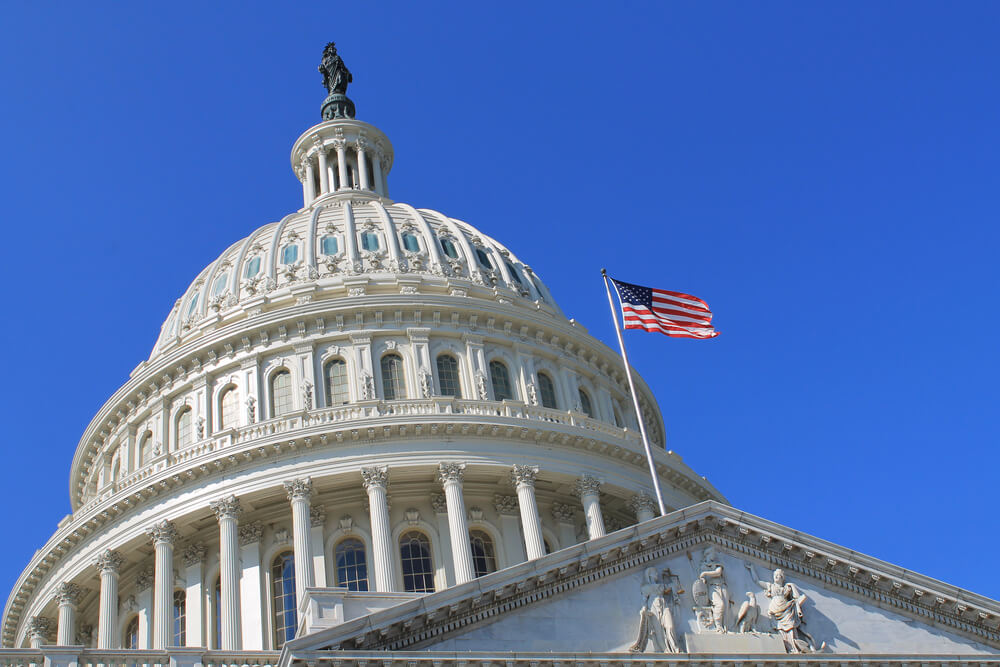
The two houses of Congress put forward an enormous number of potential new laws that could significantly impact the trucking sector. Some, like Jason’s Law, don’t have the tangible effect CDL professionals may have hoped. Others pass in either the Senate or House of Representatives but not the other legislative body. For the workforce that keeps American communities stocked with food, products, and materials, these are Bills floating around Washington, D.C., that might change the freight hauling landscape.
1: Truck Parking Safety Improvement Act
Trucking industry research indicates that only one legitimate parking space exists for every 11 drivers on any given day. Known as H.R.2187, this bill requires the Department of Transportation to provide parking for commercial motor vehicles on the federal-aid highway system through fiscal year 2026. Unlike measures that tasked the federal government with conducting safety-related research, this Bill would mandate actual parking spaces for “commercial motor vehicles on federal-aid highways or on a facility with reasonable access to such a highway or a freight facility.”
Introduced by Illinois Rep. Mike Bost, the Act moves upwards of $775 million over five years into truck parking grants. The Bill enjoys strong support from American Trucking Associations and the Owner-Operator Independent Drivers Association. If it passes and signed into law, truckers would finally get additional dedicated parking spaces.
2: The “FREIGHT” Act
The Facilitating Relief for Efficient Intermodal Gateways to Handle Transportation Act shouldn’t be lumped in with the landslide of supply chain bottleneck quick fixes introduced in 2021. Introduced in the Senate on Nov. 18, 2021, the measure focuses more on communication than infrastructure and workforce shortages. The basic idea is that it tasks port terminal administrators with notifying logistics outfits, shippers, fleet operations, railroads, and owner-operators, among others, their cargo is ready for pickup.
Although standardized communication would likely reduce delays, there are plenty of reasons why this measure may be going nowhere fast. First, it’s perceived as a partisan measure co-sponsored by vocal Republicans. It’s also likely that port authorities will balk at the idea of yet another federal mandate.
3: The “STEER” Act
The Supporting Trucking Efficiency and Emission Reductions (STEER) Act could prove to be a cost-effective measure for career truckers and fleet operators. The measure creates a voucher program that offsets the cost of buying and installing devices that improve fuel efficiency or reduce emissions. The White House has been quite vocal about transitioning to electric vehicles and states such as California are doling out credits upwards of $120,000 for Class 8 EV purchases. This seems like a win-win for both parties and members of the freight transportation sector. However, H.R.4810 has been stuck in the committee since July 2021.
Given the massive infrastructure package that includes discretionary spending, passing the $500 million voucher program could save truckers money while helping to meet the White House’s climate goals.
Sources: freightwaves.com, transportdive.com











At $100 per hour in detention time,definitely shipper/receiver will have the load ready to be loaded or received and the problem with driver shortage solved and a lot of emission too…since drivers are driving in circles for hours to find a spot and that translates in a lot of pollution.
Drivers shortage is a myth since is proven over and over again that actually drives are driving under 8 hours per day and even 7 due to significant delays at shipper/receiver and sitting in traffic or trying to find a spot to park.
Another law that could impact trucking industry significantly is to not allow mega shipper/receiver to build huge developments with significant trucking spot for staging area and redesign actual place with room for truck and not room for huge boulders,no parking signs from 30 ft to 30 ft and huge grass area next to their facilities.
I could make a film in this regard for lecture those that don’t understand that actually is an abuse of everyone against truckers and nothing is done for decades but new regulations and punishments against truckers.
Every day another 10 drivers are dying because of electronic book.
Most accidents could be avoided if some rules would be implemented and I could talk to Secretary of Transportation in person to explain to him what exactly could be done to reduce actual situation from driving like crazy to driving civilized or normal.
Before doing what’s right for the truckers or the country, politicians must 1st get the OK from their rich donors (puppet masters) (and K street) ensuring all are going to make $$. Wages have been too low for 30yrs. Raises given today are 30yrs old so it means nothing in todays dollars. Always profits B4 people or common sense. Nothing but a shell game to keep ALL WAGES low in USA.
You got that right.
Political Elites:
They sold truckers out to Big Tech. Eld requirements insured tech would make billions of dollars annually in perpetuity from the trucking industry.
(Data proves ELD requirements hasn’t improved safety)
They sold the industry out to Big Insurance.
The provision included in the Moving Forward Act, which the U.S. House of Representatives passed on July 1, raises the minimum coverage level for general freight from $750,000 per accident to $2 million.
The proposed rate increase in Congress would be “huge financial obstacle” for small-fleet truckers.
Now, we’re suffering under oppressive fuel prices.
I’m a solo driver. I pay 2000 a week in fixed operating cost to lease my truck, trailer, insurance and IFTA. The company I run for keeps 20% of total revenue. Plus I spent 2035 for fuel last week.
I’m paying over 2000 a week in fuel!
They sold us out to BIG OIL!
I WILL BE AT THE BALLOT BOX NOVEMBER!